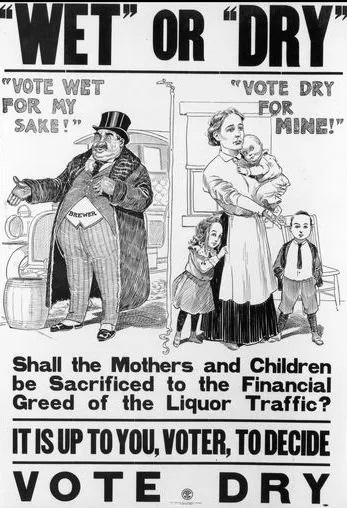
Word of the Day: Bunkum
Today’s word of the day, courtesy of Merriam-Webster, is bunkum. The dictionary’s website says this about this noun: “Bunkum is an old-fashioned and informal word that refers to foolish or insincere talk or ideas” (https://www.merriam-webster.com/word-of-the-day). This is a word with an origin story. Merriam-Webster tells the story this way: “Back in 1820, Felix Walker, who represented North Carolina’s Buncombe County in the U.S. House of Representatives, was determined that his voice be heard on his constituents’ behalf, even though the matter up for debate was irrelevant to Walker’s district and he had little of substance to contribute. To the exasperation of his colleagues, Walker insisted on delivering a long and wearisome ‘speech for Buncombe.’”
Another version is similar: “At the close of the protracted Missouri statehood debates in the U.S. Congress, supposedly on Feb. 25, 1820, North Carolina Rep. Felix Walker (1753-1828) began what promised to be a ‘long, dull, irrelevant speech,’ and he resisted calls to cut it short by saying he was bound to say something that could appear in the newspapers in the home district and prove he was on the job. ‘I shall not be speaking to the House,’ he confessed, ‘but to Buncombe’” (https://www.etymonline.com/search?q=bunkum).
Etymonline adds this little tidbit: “hokum (n.): 1917, theater slang, ‘melodramatic, exaggerated acting,’ probably formed on model of bunkum (see bunk (n.2)), and perhaps also influenced by or based on hocus-pocus.”
On this date in 1920, Prohibition went into effect.
In the decades leading up to the passage of the 18th Amendment, a variety of groups, including the Anti-Saloon League and the Christian Women’s Temperance Union, along with a lot of churches, campaigned against alcohol. They pushed the idea that alcohol was responsible for poverty and crime, and that if alcohol were prohibited, poverty and crime would go away. Carrie Nation (or Hatchet Granny) made a name for herself by going into saloons and destroying the stock, first with rocks and later with a hatchet. Eventually, she gave up destroying saloons and just spoke out against them. She was arrested many times, and paid quite a few fines.
In August of 1917, the Senate passed a resolution that would lead to the 18th Amendment. Several months later, the House passed a revised version of the resolution, which the Senate then agreed to, and the 18th Amendment was sent out to the states for ratification. At that time, there were 48 states, which meant that at least 36 needed to agree with the amendment (3/4 of the states is required, so today the number would be 38). But of the 48 states, 23 already had their own state laws that banned saloons or, in some cases, outlawed the manufacture of alcoholic beverages, so it was not really that much of a reach to get to 36 states.
Of the 48, only 2 states did not ratify the 18th Amendment, Connecticut and Rhode Island. Five state, North Carolina, Utah, Nebraska, Missouri, and Wyoming all voted to ratify on January 16, 1919, and they were numbers 34 through 38, so the Amendment was official on that date.
Later that year, Congress passed what is called enabling legislation that lays out how exactly the rules laid out in the 18th Amendment would be enforced. This bill, called the National Prohibition Act though better known as the Volstead Act, named after a Minnesota Republican, was initially vetoed by president Woodrow Wilson, but Congress overrode his veto.
The 18th Amendment did not actually ban the consumption of alcohol. It banned the manufacture, sale, and distribution of alcohol. And as we all know, the Amendment was a miserable failure. Instead of creating an alcohol-free utopia with no poverty and no crime, Prohibition created an environment that enhanced criminal activity. Organized crime and gangs existed before Prohibition, but Prohibition enhanced the power and influence of organized crime. One could also argue that Prohibition led to disrespect for the law.
Alcoholic beverages have been with humans for thousands of years. I remember that when my son was in high school, he had to read a book over the summer called The History of the World in Six Glasses, by Tom Standage. Here is part of the blurb on Amazon: “A History of the World in 6 Glasses tells the story of humanity from the Stone Age to the 21st century through the lens of beer, wine, spirits, coffee, tea, and cola. Beer was first made in the Fertile Crescent and by 3000 B.C.E. was so important to Mesopotamia and Egypt that it was used to pay wages. In ancient Greece, wine became the main export of her vast seaborne trade, helping spread Greek culture abroad. Spirits such as brandy and rum fueled the Age of Exploration, fortifying seamen on long voyages and oiling the pernicious slave trade.” It’s an interesting read, an interesting lens through which to view history. And it shows how important alcoholic beverages have been to human kind.
Even good things can be abused, and alcohol is one of them. Still, prohibiting something that has been a part of human culture for thousands of years is not likely to end problems like poverty and crime, two other things that have been part of human culture for thousands of years. But politicians, no matter their intentions, are often full of bunkum. What they are not full of, in my experience, is regret for the mistakes they have made.
The image today is a “Pro-Temperance Cartoon from the 1900s (photo Fotosearch/Getty Images)” (https://petalumahistorian.com/tag/anti-saloon-league/). This kind of either/or thinking is bunkum.